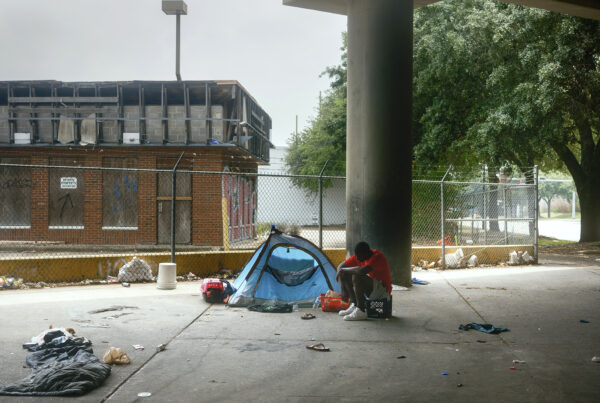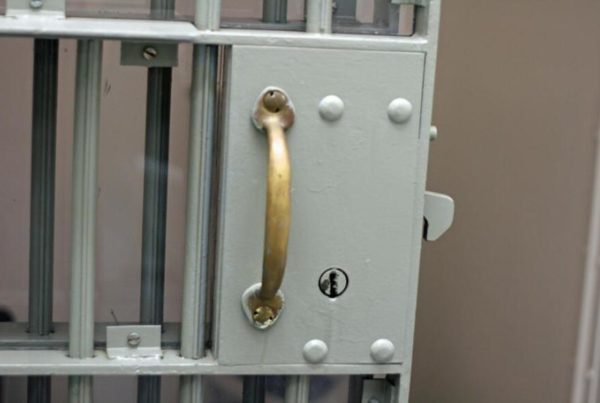Response times by the police in Houston have been the slowest they have been in decades, according to an investigation by the Houston Chronicle. In addition, police presence in areas with higher rates of crime has also gone down.
This is in spite of Houston having more officers per capita than any other Texas city except for Dallas. The city also allocates more than a third of its general fund budget to the police department.
So what is the cause of these issues?
Mike Morris was one of the reporters that dug deep into the data for this story and he joined Texas Standard to discuss. Listen to the interview above or read the transcript below.
This transcript has been edited lightly for clarity:
Texas Standard: So how did you find out this was even an issue to begin with?
Mike Morris: I was reporting on a city-related topic last fall and wanted to put some of what we were writing about then in better context. And I knew that the departments had been slowly declining in recent years, so I thought “let me check and see whether response times are rising.” I just filed a records request and it turned out they were. And so we set that aside and came back to it. It’s been a few months getting a lot more granular data around that.
Well, tell us a bit more about what you found. How much longer is police response time compared to a decade ago?
From a decade ago, the most serious calls – Priority 1 calls, when a life-threatening event is in progress – those are up about 25%. The city is responding in more than six minutes instead of just under five minutes. Over six minutes is, in fact, over the department’s goal. They hope to respond in four to six minutes – in that range.
Similar increases for Priority 2 calls. When a property crime is in progress, those are now approaching 12 minutes – the top of the city’s goal.
And what really jumped out was the lower priority. Mostly property crime calls below Priority 1 and 2 – Priority 3, 4 and 5 – those have really jumped more than 140% plus – from 20/30 minutes 10 years ago to more than an hour, hour and a half today.
Is this having ripple effects? Are we seeing an increase in crime to go along with that or what?
We didn’t check the stats on the numbers of crimes, so I can’t tie that specifically to responses. It’s interesting though, the overall volume of calls has declined over the last 20 years, the period that we studied.
That’s fascinating. Now, do you see this as an issue that’s specific to Houston and not to other cities in Texas? Or what was your takeaway on that score?
We didn’t do a deep dive into all the other Texas cities, but I do know that Houston is not alone in struggling with response times.
Two years ago, Austin stopped sending an officer to most property crime calls. And just this year, Dallas announced they would stop sending officers to some types of calls, mostly property crimes, thefts, minor accidents, car burglaries.
Houston does still respond to those calls. In many cases, they have not changed their policy on that. But again, they’re responding much slower than they used to.
Well, what about the community response? How has this been affecting people, especially in those neighborhoods that seem to be getting the worst of this?
We heard a fair amount of concern and, frankly, cynicism. Priority 1 calls are common, but they’re not nearly as common as property crime calls. Experts say that slow responses to common needs can undercut public confidence in any police department – Houston or anywhere else.
In some of the areas – not all, but some of the areas – many of the areas where the response has slowed are areas where residents are not always inclined to trust the police to begin with. So anything that risks further eroding that relationship is counterproductive for public safety.
How have city officials responded to your reporting?
The executive assistant chief we spoke to for the story acknowledged the issue and says that they worry every day about trying to be the department that the public expects them to be when it comes to responding to their needs.
Well, before we let you go, I have to ask whether or not you get any sense from any of the responses you’ve heard that there will be any change.
Whether there will be changes moving forward, again, the city has not said that they would change policy the way that Austin or Dallas have.
What they are looking at in the near term is to assign more officers to proactively – such as officers who are recovering from injuries and can’t be in the field – they’re gonna assign more folks to proactively call people who are awaiting service on a low priority call to try to address it by phone rather than sending an officer.
And they didn’t give me a timeline on this part, but they say they wanna launch a better online system to help people report crimes online and avoid placing a call in the first place.













